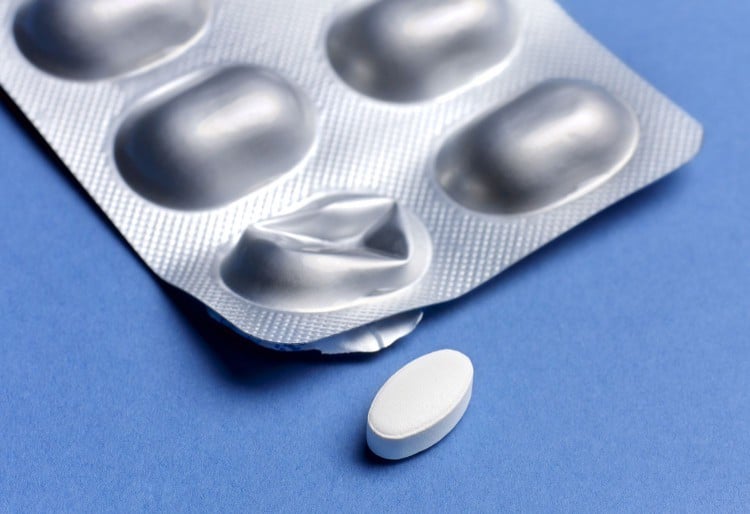Statins: Only 35% of People Who Would Benefit Are Taking Them
- Almost two-thirds of Americans who would benefit from statins aren’t taking them.
- Most people who are at particularly high risk for a heart attack are not on statins.
- People who have previously had a heart attack or stroke, those who have diabetes or very high cholesterol levels, and those who have an increased risk for heart attack or stroke due to high blood pressure may benefit from statin use.
Millions of adults who could benefit from statins to prevent cardiovascular disease aren’t taking them, new research shows.
An estimated 86 million U.S. adults ages 20 or older have high cholesterol—total cholesterol levels above 200 mg/dL—which can increase the risk of heart disease and stroke. Statins can help with that; the drugs work by reducing cholesterol production in the liver, lowering the overall amount of cholesterol in the blood.
But the new study, published earlier this month in the Annals of Internal Medicine, found that only about 35% of adults eligible for statin use are taking them. And those who might benefit from the medications the most, including people with diabetes, extremely high cholesterol, or a 10-year risk of cardiovascular disease of over 20%, are not receiving them.
That’s despite guidelines from the American College of Cardiology (ACC) and the American Heart Association (AHA) in 2013, which expanded eligibility for statin use as a means of primary prevention for cardiovascular disease in people with an increased risk.
“We know preventative treatments like statins aren’t going to be used by every single person who is eligible,” study lead author Timothy Anderson, MD, assistant professor of medicine at the University of Pittsburgh, told Health. “But over time, we expect to see an increase in use, and our research shows there’s been a plateau in use of statins since 2013.”
Here’s what to know about low uptake on statin use for the primary prevention of cardiovascular disease, why people often choose not to go on statins, and who can benefit most from the medication.

Peter Dazeley/Getty Images
Why Aren’t More Eligible People on Statins?
There are a number of reasons why people may not be on statins or may be hesitant about taking them—and the suspicions date back to when the drugs were first introduced.
“Since 1987, when statins came out, there has been a kind of suspicion of them from patients and that’s gotten more prevalent over the years,” Stephen Kopecky, MD, a cardiologist and director of the Statin Intolerance Clinic at the Mayo Clinic, told Health.
Part of this is due to side effects—mostly muscle aches—that were not made clear by drugmakers when statins were first approved.
“We thought there was a 1% chance of having muscle aches as a side effect when it’s really 15%–20%, so patients lost trust with us,” said Kopecky.
Muscle aches aren’t the only risk associated with statin use: Some research has found that statins can increase blood sugar and prevent the body’s ability to produce insulin, increasing a person’s risk of diabetes.
In addition to hesitancy over side effects, Anderson said there are other things preventing people with high cholesterol from taking statins, like a lack of access to primary care.
“People have occasional visits but don’t go in for follow-up care,” said Anderson. “Sometimes people qualify and don’t get a prescription from their doctor, or people get a prescription but don’t fill it.”
There’s also been a rise in misinformation about both LDL (low-density lipoprotein) cholesterol—sometimes referred to as “bad cholesterol”—and statins, fueled largely by social media. which may be contributing to the plateaued uptake.
Research backs this up: A study published earlier this year used artificial intelligence (AI) to analyze statin-related posts on social media. Of the more than 10,000 posts found, almost one-third expressed negative views of statins.
But Kopecky said the true nature of LDL cholesterol is much more nuanced than just being called “bad.”
“LDL cholesterol isn’t only bad,” said Kopecky. “If you didn’t have it you would be dead. It’s about the level of that cholesterol and we need to get that across to patients.”
Over 40% of US Adults With High Cholesterol Don't Know It and Aren't Getting Treatment
Who Can Benefit From Statin Use?
How much a person will benefit from statin us depends on their chances of having a heart attack or stroke.
People who have previously had a heart attack or stroke, those who have diabetes or very high cholesterol levels, and those who have an increased risk for heart attack or stroke due to high blood pressure, can live longer, healthier lives with statin use.
Clinicians can help determine a patient’s risk for heart attack or stroke by using an atherosclerotic cardiovascular disease (ASCVD) risk calculator, which can estimate a patient’s 10-year risk of having a heart attack. The calculator takes into account a person’s age, blood pressure readings, cholesterol levels, and other information on their medical history.
“[Clinicians] will use that score to guide whether we make a strong recommendation [on statin use],” said Anderson.
In addition to statin use, people with an elevated risk of cardiovascular disease and high cholesterol also benefit from changing certain lifestyle factors, including diet, exercise, lowering stress, and sometimes quitting smoking or losing weight.
“Cholesterol is in every plaque that we have in our arteries to our heart and it catches up to you later in life,” Kopecky said. If you intervene early, when the problem is more manageable, “you can really take care of it.”
